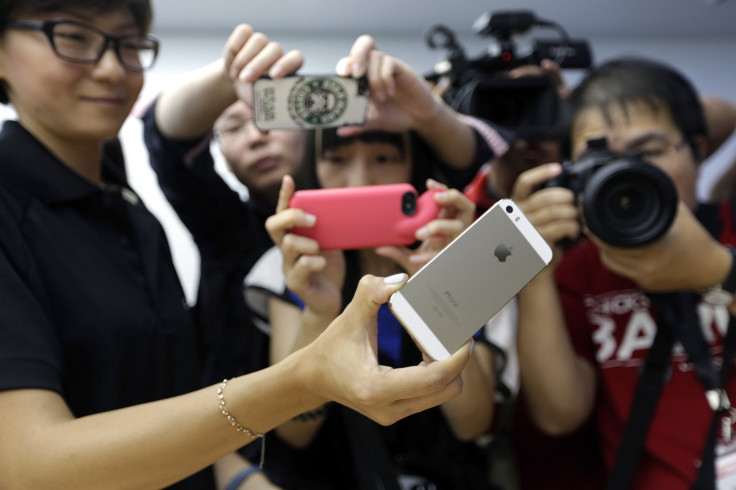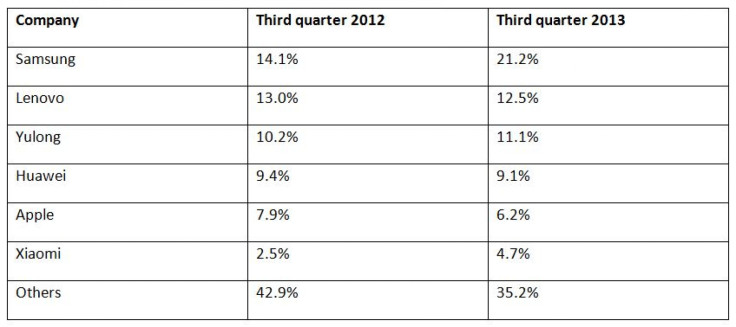Apple’s China Mobile Deal: Timing Matters To Get The Mojo Working And Cupertino Knows It
Timing Matters

As part of the newly inked deal with Apple (NASDAQ: AAPL), China Mobile (NYSE:CHL), the world’s largest carrier and the most significant mobile operator not to sell the iPhone yet, will finally begin offering the iPhone 5s and 5c in China from mid-January. The deal is seen as the most significant development from Apple this year as it offers the company access to a massive consumer base, and a much-needed opportunity to gain a stronger foothold in the crucial Chinese market.
Announcing the partnership on Sunday, Apple acknowledged that China is an extremely important market for the company, and said that its tie-up with China Mobile is expected to help expand its reach within the country, underlining the fact that Apple's partnerships with smaller Chinese carriers have not helped the company gain significant inroads into the world's largest smartphone market.
“The China Mobile deal is huge for Apple because it provides what they've never had: broad distribution in China with the country's largest carrier,” Patrick Moorhead, an analyst at Moor Insights & Strategy, told Los Angeles Times.
Although sales of iPhones are growing in China, the company’s share of the smartphone market has shrunk over the past year as it has faced intense competition from Samsung (KRX:005935) and other Chinese brands. According to recent data provided by Canalys, Apple ranks fifth in China in smartphone sales, trailing Samsung, Huawei, Lenovo (HKG:0992) and Yulong.
In fact, one of the reasons China Mobile reportedly did not join hands with Apple so far was due to the poor sales of the iPhone 5c. Here is a breakdown of China’s smartphone market, courtesy of Canalys:

Timing Matters
Even before the announcement of the Apple-China Mobile agreement, there were some advertisements of the iPhone 5s in China, suggesting that a deal between the companies was about to take place.
Earlier this month, such an advertisement appeared on the website of a registered China Mobile subsidiary in Suzhou, west of Shanghai, which led to speculation that China Mobile had begun taking iPhone pre-orders. Last week, iPhone ads showed up on 14 different websites -- presumably controlled by China Mobile -- in China, despite denials from company officials.
According to Fortune, while these incidents suggest that China Mobile was “trying to put the squeeze on Cook,” the timing of the deal’s announcement and the schedule of the devices’ release have worked out well for Apple. As noted in the report, the Sunday afternoon announcement should give the stock market enough time to absorb and react to the news.
And, by the time official pre-registrations for iPhones begin in China on Dec. 25, the company will have put the Christmas rush behind in the U.S. In addition, the iPhone 5s and 5c will reach retail stores in China on Jan. 17, only two weeks before the Chinese New Year’s buying frenzy.
“The timing is perfect because it’s a gift season before the Chinese New Year,” Nicole Peng, an analyst at Canalys, told the Wall Street Journal.
According to Peng, iPhone sales are likely to jump in the January-March quarter after China Mobile begins selling them from mid-January. And, after China Mobile’s 4G service becomes available outside the country's major cities, the carrier’s nationwide distribution channel, which covers many smaller cities and rural towns, will be beneficial for Apple, Peng said.
China Mobile currently has 763 million customers, and it has announced that it will launch 4G services in 16 cities including Beijing, Shanghai, Guangzhou and Shenzhen by the end of this year. By the end of 2014, the carrier plans to complete the roll-out of more than 500,000 4G base stations, covering more than 340 cities with its 4G service.
© Copyright IBTimes 2024. All rights reserved.












